Engaged Anthropology Grant: Kelsey Dancause
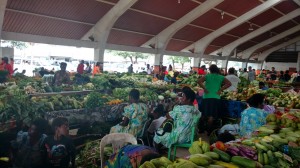
In 2015 Dr. Kelsey Dancause received a Post-Ph.D. Research Grant to aid research on “Effects of Prenatal Psychosocial Stress on Birth Outcomes in Developing Countries: Filling the Knowledge Gap Using Validated Surveys in Vanuatu”. In 2017 Dr. Dancause received an Engaged Anthropology Grant to aid engaged activities on “Promoting Local Research Capacity Through Psychosocial Health Research Training and Knowledge Translation”.
In 2015, we began the “Healthy Mothers, Healthy Communities” study of maternal psychosocial stress during pregnancy in Vanuatu, a lower-middle income country in the South Pacific. The archipelago had recently been hit by a Category 5 cyclone, which destroyed many villages and affected large numbers of the population. Based on studies showing links between prenatal stress due to natural disasters and infant health outcomes, we adapted questionnaires commonly used to assess post-traumatic stress disorder symptoms, in order to assess distress due to the cyclone among pregnant women and women of reproductive age in Vanuatu. In 2016, we followed up on this study to assess daily stress, depression, and anxiety among similar samples. Our diverse sample included women from hospitals, clinics, and markets in both rural and urban areas (Images 1 and 2).
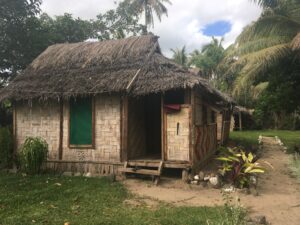
This is a unique study that allows us to assess the role of psychosocial stress in risk of adverse birth outcomes such as low birthweight and prematurity that remain elevated in many low- and middle-income countries, and to begin to tease apart differences between acute distress and chronic stress, anxiety, and depression. Our analyses to date have helped us to characterize mental health patterns in Vanuatu. We observed that distress following the cyclone was very high, and that high distress among pregnant women in the sample predicted smaller weight among their infants at birth: controlling for confounding variables, distress explained 8.5% of variance in birthweight (p=0.012), and was an even more important predictor of birthweight than maternal dietary characteristics.
Equally importantly, our experience has highlighted that psychosocial health is an increasing priority, both among health professionals and community members. Thus, in 2017, we worked to adapt our assessment tools for broader use by local health professionals, and by other researchers working in Vanuatu.
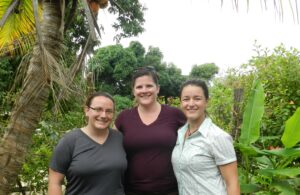
From June-August 2017, we worked in Port Vila, Vanuatu to re-evaluate and refine our psychosocial health assessment measures. We met with nurses, physicians, and professionals at the Ministry of Health. We presented results of our 2015 and 2016 studies, highlighting the importance of maternal mental health in Vanuatu and the need for more detailed surveillance. We reviewed and revised our assessment tool with these key collaborators. We also updated our database in collaboration with midwives from Vila Central Hospital, and shared the full dataset with key health professionals. This provides a baseline dataset for comparison to future studies that incorporate our assessment tool.
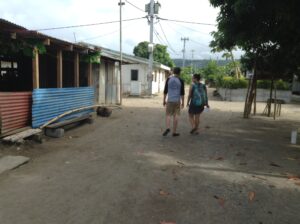
We also followed up with 100 women who completed the questionnaires in 2016 (Image 3). We re-administered the same questionnaires, which allows us to assess consistency of responses over time. We also discussed women’s perceptions of the questionnaires and their suggestions. We met women in their communities, which allowed us to include chiefs and other community leaders in discussions. Finally, we administered the assessment tool among men and among older women in the same communities, allowing us for the first time to begin to assess its applicability among samples beyond women of reproductive age (Image 4). Together, these evaluations help us to refine the assessment tool, for broader use by local health professionals.
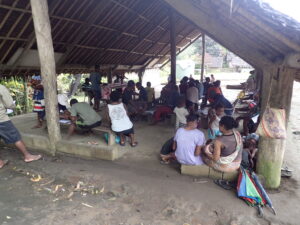
Recently, the entire population of one island in Vanuatu – more than 12,000 people – was evacuated because of risk of a volcano eruption. Given the increased focus on mental health in Vanuatu, a mental health team was on hand to help provide services to the displaced communities. We worked with local collaborators to collect data in the displaced communities using our assessment tool (Image 5). These studies will allow us assess the efficacy of the intervention programs, and the short and long-term effects of stress due to displacement in these communities. This could provide important insights to guide the development of similar services in other low- and middle-income countries. We are also currently adapting our assessment tools for use not only by local health professionals, but by community volunteers who could help to increase mental health surveillance resources, and also provide a first contact for people seeking mental health services. Where resources are limited, such community-focused efforts might provide a sustainable means of increasing mental health services and ultimately improving health and well-being.